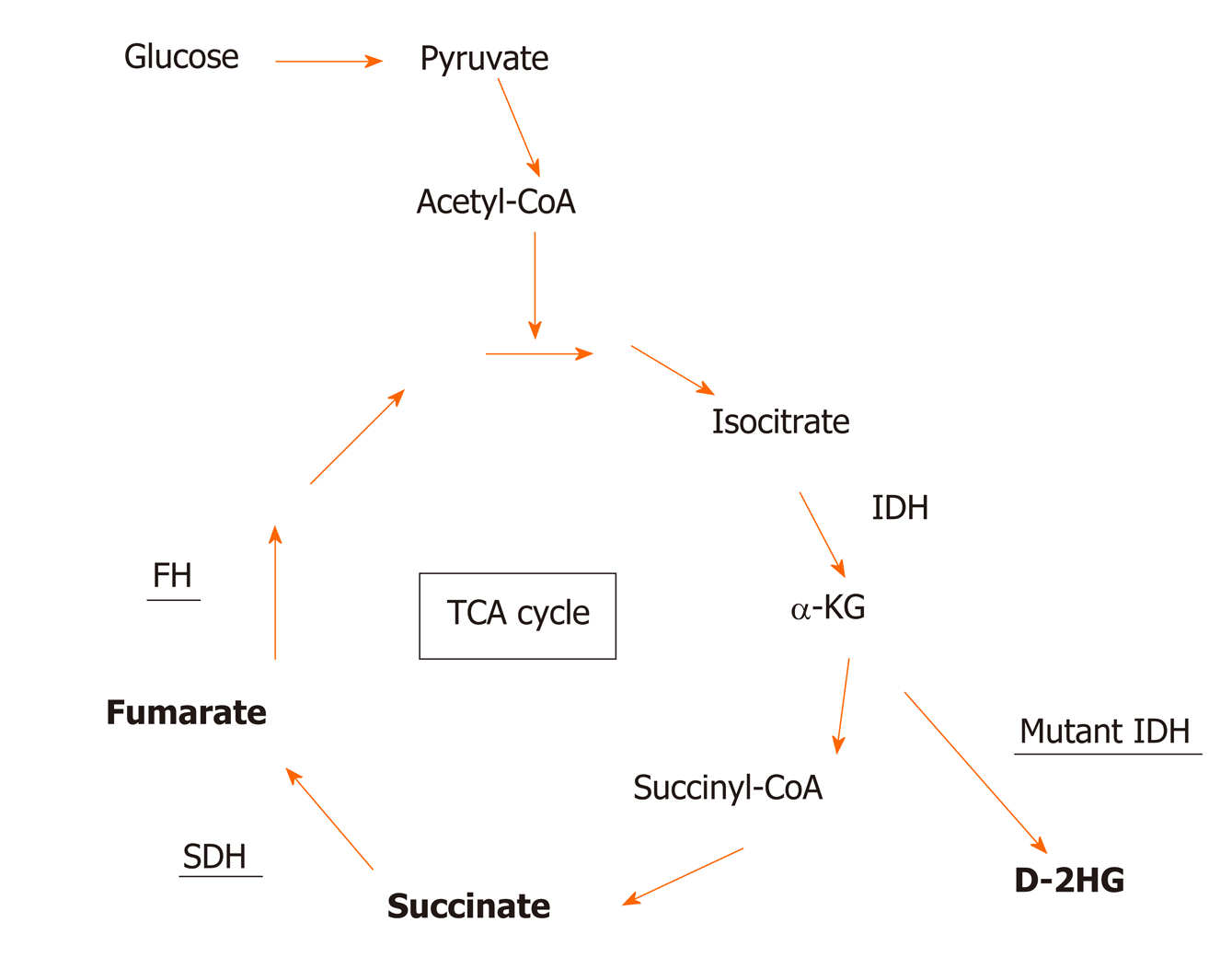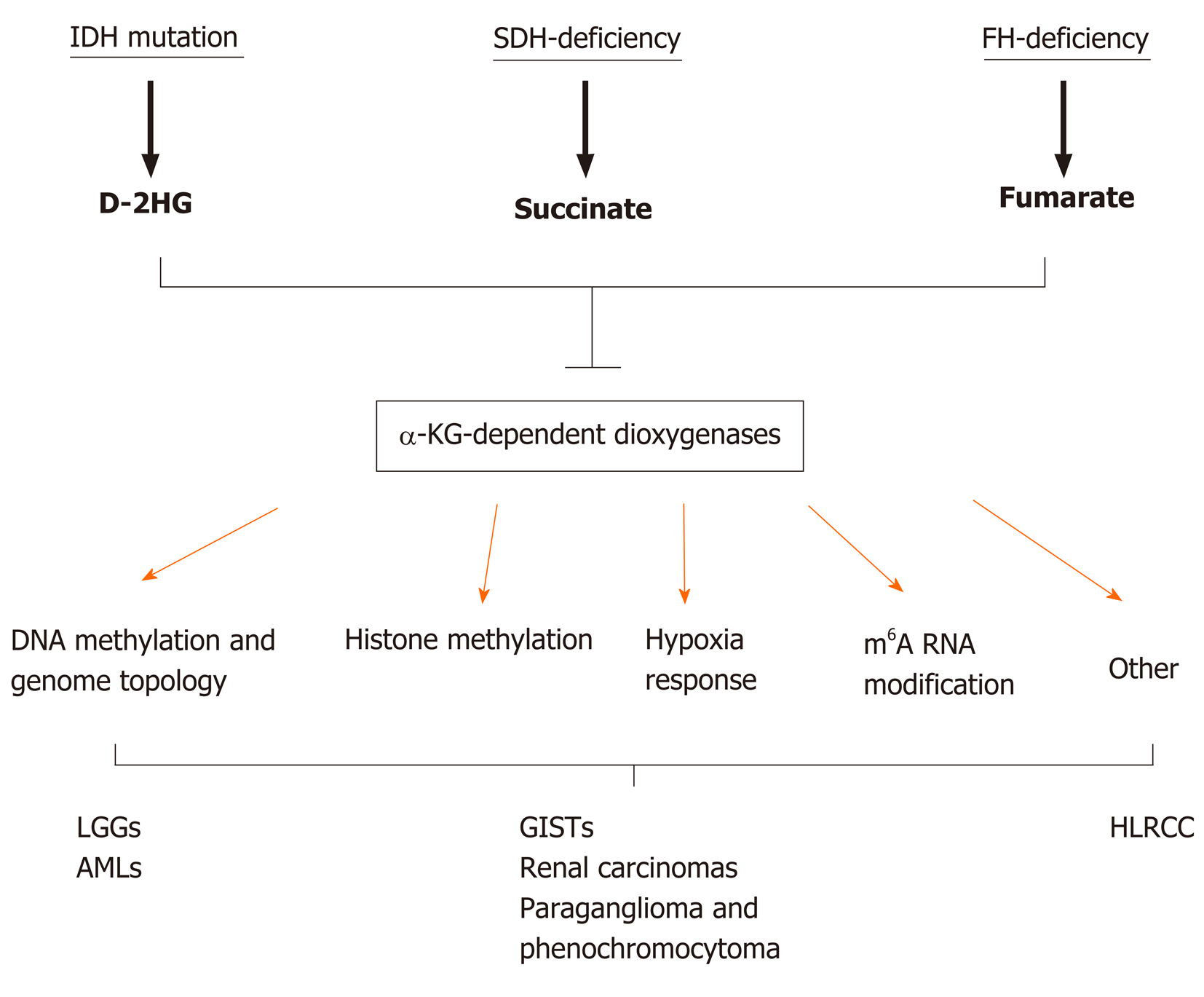Copyright
©The Author(s) 2020.
World J Gastroenterol. Sep 14, 2020; 26(34): 5074-5089
Published online Sep 14, 2020. doi: 10.3748/wjg.v26.i34.5074
Published online Sep 14, 2020. doi: 10.3748/wjg.v26.i34.5074
Figure 1 Mutations in metabolic enzymes produce oncometabolites.
Shown are genetic mutations in tricarboxylic acid (TCA) cycle enzymes (underscored) involved in generating oncometabolites (bold). Isocitrate dehydrogenase (IDH) mutations are neomorphic, producing proteins with the modified function of producing D-2-hydroxyglutarate (D-2HG), while succinate dehydrogenase (SDH) and fumarate hydrase (FH) mutations are loss-of-function mutations that lead to the accumulation of succinate and fumarate, respectively. α-KG: α-ketoglutarate.
Figure 2 Metabolic enzyme mutations lead to the accumulation of oncometabolites, which competitively inhibit α-ketoglutarate-dependent dioxygenases.
α-KG: α-ketoglutarate; AMLs: Acute myeloid leukemias; D-2HG: D-2-hydroxyglutarate; FH: Fumarate hydrase; HLRCC: Hereditary leiomyomatosis and renal cell cancer; IDH: Isocitrate dehydrogenase; LGGs: Low-grade gliomas; SDH: Succinate dehydrogenase.
- Citation: Zhao Y, Feng F, Guo QH, Wang YP, Zhao R. Role of succinate dehydrogenase deficiency and oncometabolites in gastrointestinal stromal tumors. World J Gastroenterol 2020; 26(34): 5074-5089
- URL: https://www.wjgnet.com/1007-9327/full/v26/i34/5074.htm
- DOI: https://dx.doi.org/10.3748/wjg.v26.i34.5074










